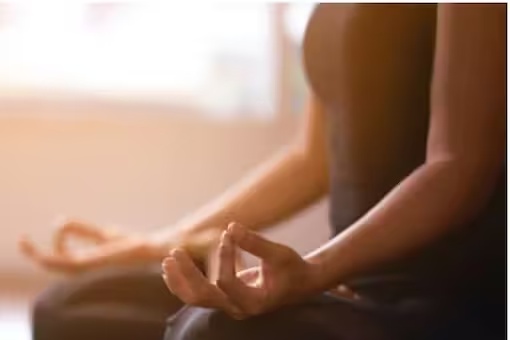Yoga is beneficial for both our physical and mental health. It encourages holistic wellness. Pranayama boosts the capacity of our respiratory system and has a significant impact on the nervous system. Doing it regularly regulates and controls vital body functions including blood pressure, heart rate, and respiration. Pran denotes bioenergy, while Ayama denotes management or control. There are many different varieties of pranayama, and they bring advantages to daily life.
Types of Pranayama:
Nadi Shodhana or Alternate Nostril Breathing:
It is one of the most common types of pranayama. The alternate nostril breathing balances the three doshas of the human experience: the mind, body and soul.
Instructions:
Sit in a cross-legged position (ensure that you are comfortable).
Keep your left hand on your left knee.
Close your right nostril with your right thumb.
Inhale with the left nostril.
Then, close your left nostril with the remaining fingers.
Open your right nostril and exhale with it.
Repeat the process about 10 times.
Shitali Pranayama or Cooling Breath:
The reason why this technique is known as cooling breath is that it is incredibly revitalising.
Instructions:
Sit in a cross-legged position (ensure that you are comfortable).
Take a few deep breaths to prepare.
Stick your tongue out. Make sure to roll it in an O shape.
Inhale through the mouth and hold your breath.
Practice Jalandhar bandh (chin lock).
Then, exhale with the help of your nostrils.
Repeat the cycle about 8-15 times.
Ujjayi Pranayama or Ocean Breath:
Ocean breath too is one of the most common techniques of Pranayama. The rhythmic ocean waves sound created by breathing aids one in focusing their mind.
Instructions:
Sit in a comfortable position.
Breathe in through your mouth.
Fog up the back of your throat and close your mouth.
Continue breathing out through your nose and ensure to keep your throat constricted.
Repeat the cycle for about 5-10 times.


